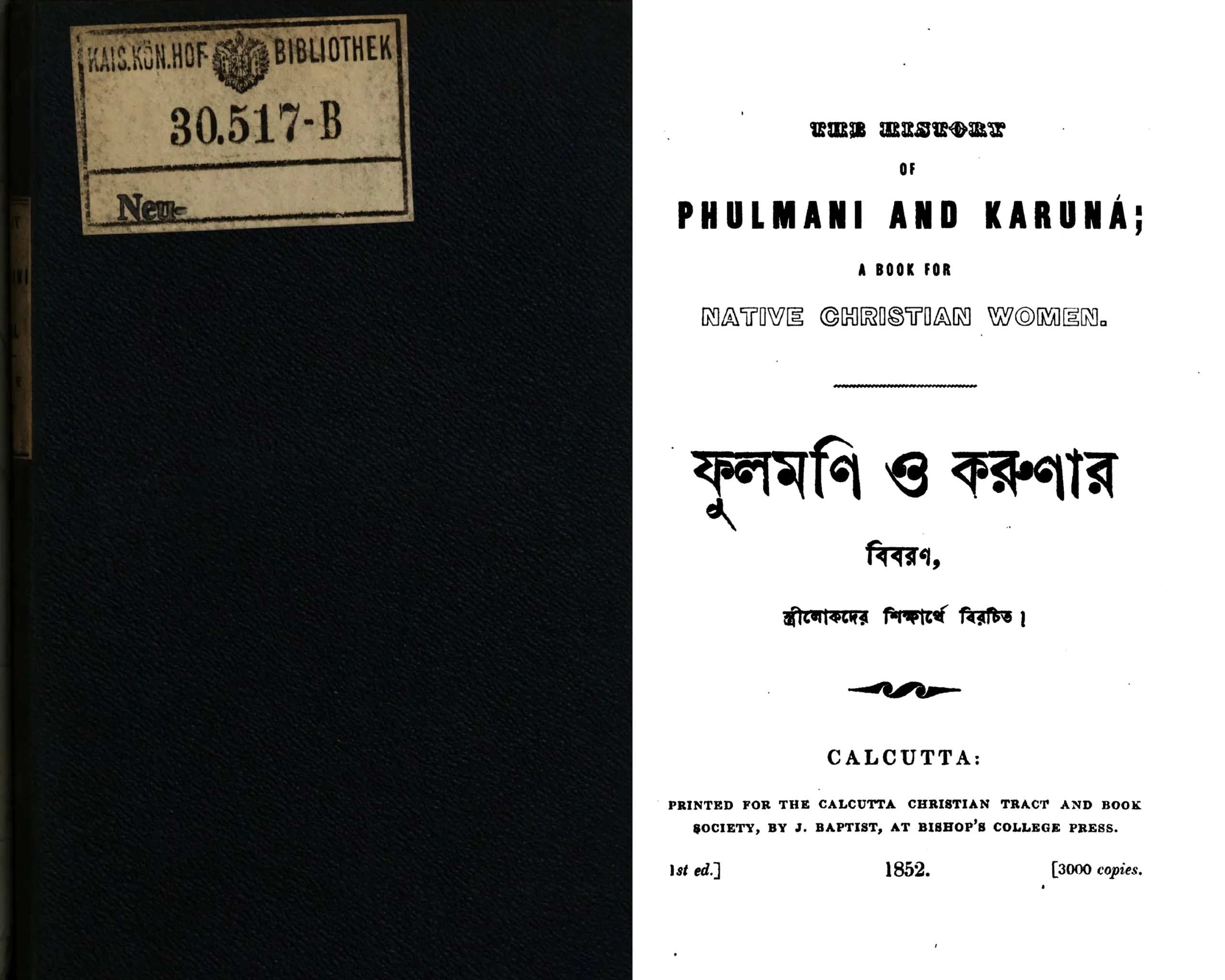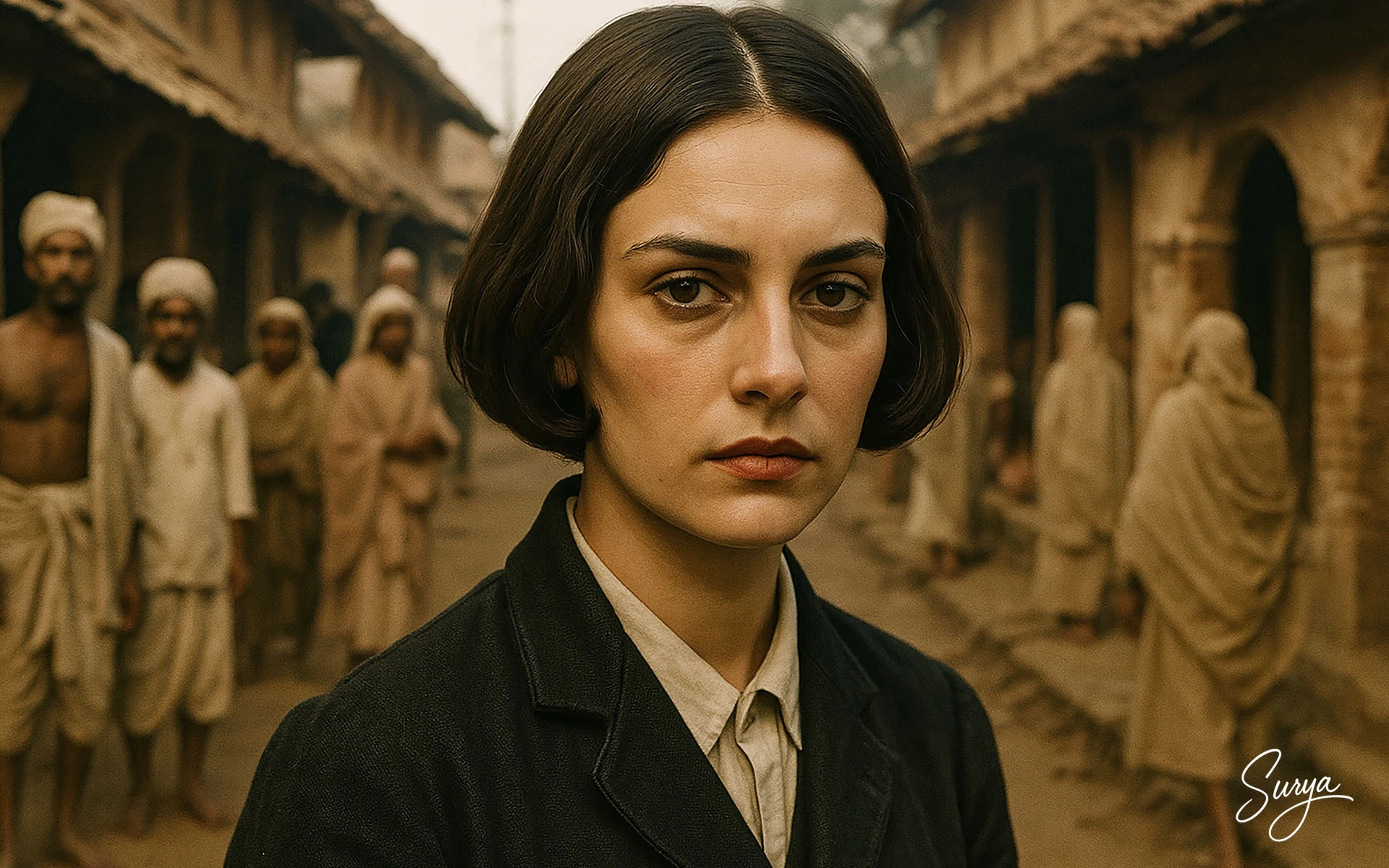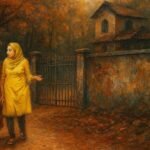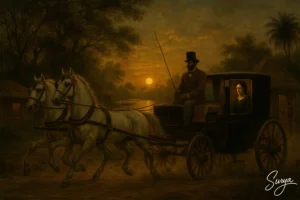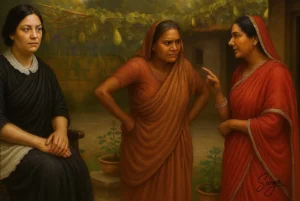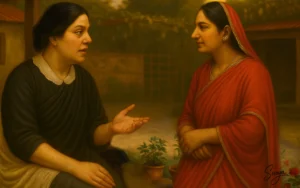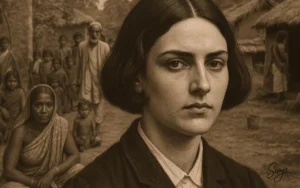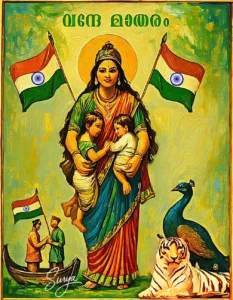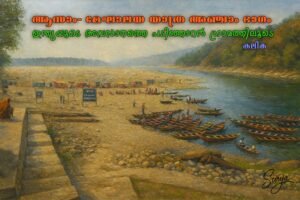Published on: October 14, 2025
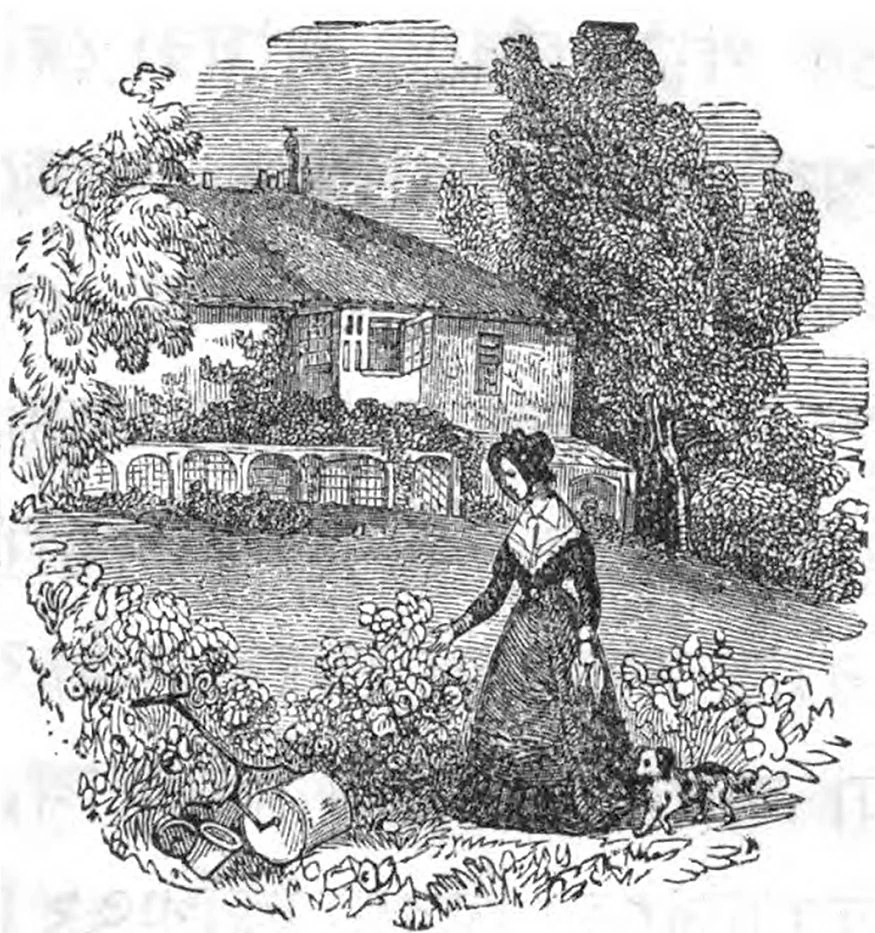
THE HISTORY OF PHULMANI AND KARUNA PART-1
‘THE HISTORY OF PHULMANI AND KARUNA; A BOOK FOR NATIVE CHRISTIAN WOMEN’ (Phulmani O Karuna Bibaran) is the first Indian language Novel, published in 1852 written in Bengali language, titled with ‘ফুলমণি ও করুণার বিবরণ, স্ত্রীলোকদের শিক্ষার্থে বিরচিত।’ by Hannah Catherine Mullens. The Novel has 10 chapters and the English Translation is also written by Hannah in 1853. It was printed in Sanders, Cones and Co., at Loll Bazar, Calcutta.
Now the novel is republished here with divided chapters of its 10 chapters. This is the 1st part of its 1st chapter.
AUTHOR’S PREFACE:
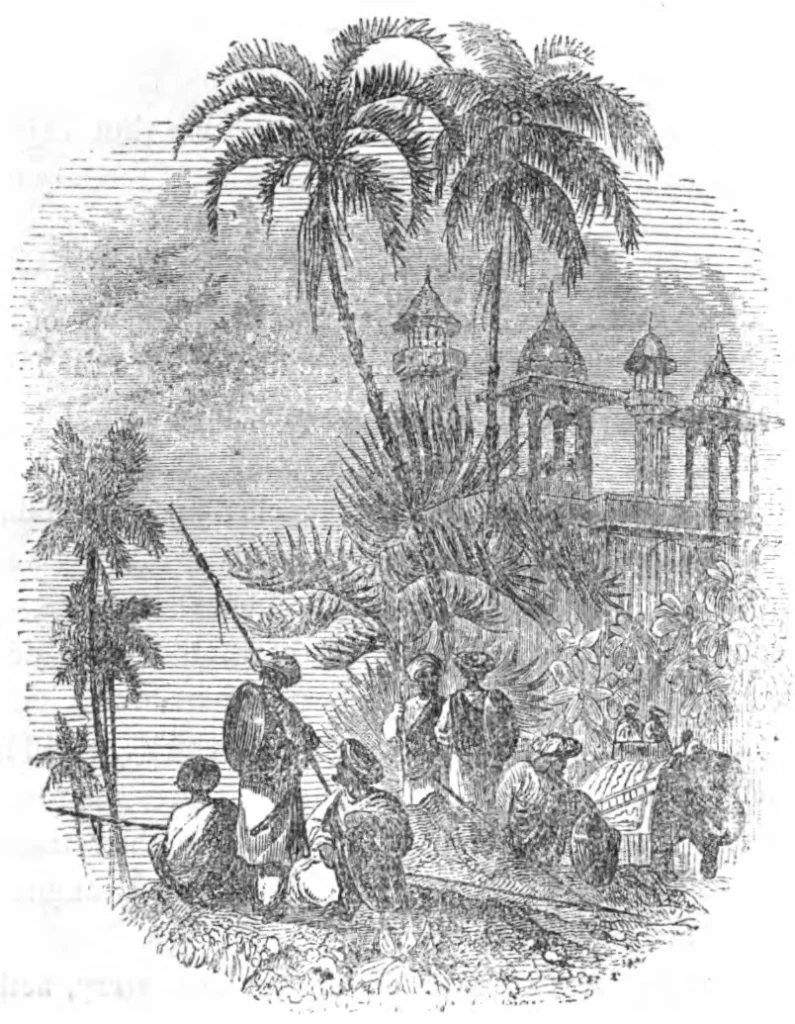
The nature and object of this little work are thus explained by the writer herself, in a note addressed to the Secretary of the Calcutta Christian Tract and Book Society :—
“It is a book specially intended for Native Christian women. I have endeavored to show in it the practical influence of Christianity on the various details of domestic life, such as the forming of marriage connections, behaviour to husbands, moral training of children, and the duty of women, specially to the poor, to the sick, and to the heathen. I have also touched upon the following topics:—the necessity of the private study of the Bible, of keeping the Lord’s day holy, of attending the house of God, and of female education ; also the bad effects of running into debt, of confining females strictly to their own houses, of injudicious treatment of the sick, of certain superstitions which are still in full force among many Native Christians, and of marriages where the parties know nothing of each other, or where their tastes are dissimilar,—the duty of domestic economy, of cleanliness, of cheerfulness, and of industry, &c.
“ The above subjects are worked into the little story, fictitious on the whole, but founded upon facts ; for many of the incidents related in it have come under my own notice, and others I have heard from Missionaries’ wives in the country. Throughout the whole book, true heart-religion has been shown to be the basis of every good work, and the simple Gospel plan of salvation has been repeatedly explained and referred to.”
Chapter-1 / Part-1
Some years ago I was residing in a country station in Bengal, situated on the bank of a river. The name of the city there is no occasion to mention here. Within about a mile’s distance of it, there is a village of Native Christians; and to this day, I remember the delightful intercourse and the religious conversation I was in the habit of holding with the brethren and sisters who lived in this village, and I give thanks for it to my Heavenly Bather, because through witnessing their mode of life and hearing their conversation,
my faith was strengthened, and by these means, I learned better than before what are the duties incumbent on the disciples of Christ.
By reading the Bible we may see that God instructs the members of His church in an especial manner by recording the lives of the ancient saints, that having the example of these saints set before them, they may seek to be holy like them. With this knowledge, I considered, that if I were to write something in the way of an account of these Christians that I have spoken of, their sisters in Bengal might read it, and by the blessing of God, might derive from it both profit and pleasure. With this intention I compose this little work.
Shortly after arriving with my family in the aforesaid station, I went to call upon the Missionary, who resided in that place. After some conversation on various subjects, I said to him, “Sir, I have lately come to this station, and I know no one here. Kindly tell me what ladies and gentlemen in your opinion attend to religion, for with such people I shall seek to form friendships. With others I do not desire to have much intercourse.” The Missionary answered, “ Alas ! among the English that are here, only two or three fear God and keep His commandments; all the rest are engrossed with worldly affairs and various sorts of amusements ; but in the neighbouring Bengali Christian village, there are some such religious people, that respecting them I can truly say, they are ornaments of the Church of Christ.” On hearing this, and on making many enquiries respecting these people, I resolved that as soon as I could find an opportunity, I would go and form an acquaintance with them.
The day following my husband was obliged to leave home and go into the interior of the district to make enquiry about a gang of Bacoits, and so in the evening, feeling very lonely, I resolved to go into the Christian village and introduce myself to the people, and converse with them. The village was about a mile from my house; but as the evening was very fine, and a cool breeze was blowing, I did not go in the carriage, but taking a chuprassi with me, set out on foot.
On entering the village, I first saw four or five mat houses. Their court-yards were untidy, and in front of them, naked children were amusing themselves by making figures of mud and dust. I could not see a single sign that these houses were the abodes of Christians ; they were less tidy and neat than the houses of Hindus. I did not therefore go into them, but passed on. Having gone a little farther, I was delighted to see an exceedingly clean and neat tiled house, and I got a good opportunity to introduce myself to its inhabitants. For I saw that in front of the house, there was hanging, from a branch of a tree, an iron perch, and upon it a green parrot fastened with a chain, and the crows were greatly tormenting it with their beaks. As soon as I saw this, I took hold of the bird and its perch, and went into the court-yard. On hearing the sound of my coming, a middle-aged woman came out. Her hair was prettily tied and her sari (dress) was very clean. I asked her if that were her bird; and I said that the crows were annoying it very much, and that therefore I had brought it into the house. The woman answered, “ You are very kind, c ma’am; it is indeed my bird; my son has forgotten it ‘ and left it outside.’’ Then she smoothed the ruffled feathers of the bird with her hand, and I saw that the bird knew its mistress well, for instead of pecking at her it sought to nestle in her clothes.
Then the woman turning to me asked, “ Ma’am, what have you come to see in our quarter ? No lady ever comes here, except the Missionary’s wife.’’ To this I answered, That is a great pity, for it is a duty incumbent on Europeans to endeavor to benefit Bengali Christians. I am the new Magistrate’s wife, who last month rented the large two-storied house in the mango grove. I yesterday heard of this Christian village from your Missionary, and to-day I have come to see you.”— “ I suppose,” said she, “ that you have come in your carriage.”— “ No,” said I, I wished to enjoy the cool river breeze, so I brought a chuprassi with me, and came on foot; but as I did not know that your village was so far off, I am much fatigued with the long walk. If you then can find and give me a seat, I will sit and rest for a little while.” On this she quickly went inside the house, and brought out an old chair. I suppose that this chair was kept aside for people of rank only, for there was some dust upon it, but in a moment she with her skirt wiped all the dust off it, and then very politely said to me, “ Madam, will you be pleased to sit down ? I should have given you a chair before, but not supposing that a Magistrate’s lady would sit in so poor a person’s house, I did not venture to say anything before.”
I then took the chair into the porch and sat down, when the womans little child inside the house awoke crying. “When she went to bring him, I was left alone for a little, and had an opportunity of seeing what was in the court-yard. It was enclosed with a fence of new darmas (mats) and new bamboos, and a pretty gourd plant was trained over it. On one side of the court-yard I could see a cow-house, and in it a cow and a calf were quietly chewing the cud. On the roof of the cow-house were many ripe gourds. On the other side of the court-yard was a cook-room ; and its door being open, I could see within three or four well polished cooking pots and pitchers : some clean stones were also heaped together. The court-yard was beautifully clean, and I saw no heaps of rubbish in it, as is the case in almost every house. All was equally clean. In front of the porch, under the eaves of the house, I saw ten or twelve plants growing in pots. Three or four of them were medicinal plants, the rest were gyandas, tulshis, ganda raj, &c.There was a very beautiful plant of a China rose covered with buds and flowers.
By the time I had seen all this, the mistress of the house again came out, and stood by my chair. Then I told her to sit down, and she sat upon the threshold of her door, and began to give suck to her child. It was a beautiful’boy, about a year old, as I supposed. It was dressed in a jacket of warm cloth. Its mother also wore a a korta” (a kind of frock) I think it would be well if all Christian women
would adopt this style of dress. The cloth for a ” korta ” costs two annas, which is not a large sum, and if they learned a little workman-like skill, it could easily be prepared at home.
But let that pass. The woman having sat down, I began to converse with her, and asked her what was her name, her husband’s occupation, and how many children she had. She told me that her husband was employed by the Missionary as a Hurkaru to carry letters and to collect the monthly subscriptions that gentlemen gave for defraying the expenses of a school, and that sometimes he had to go to Calcutta to buy various articles for the Mission ; that her name was Phulmani; and that she had two sons and two daughters.
Phulmani would have said more, but just then, another woman, pushing the outer door violently, came in.
To be continued…
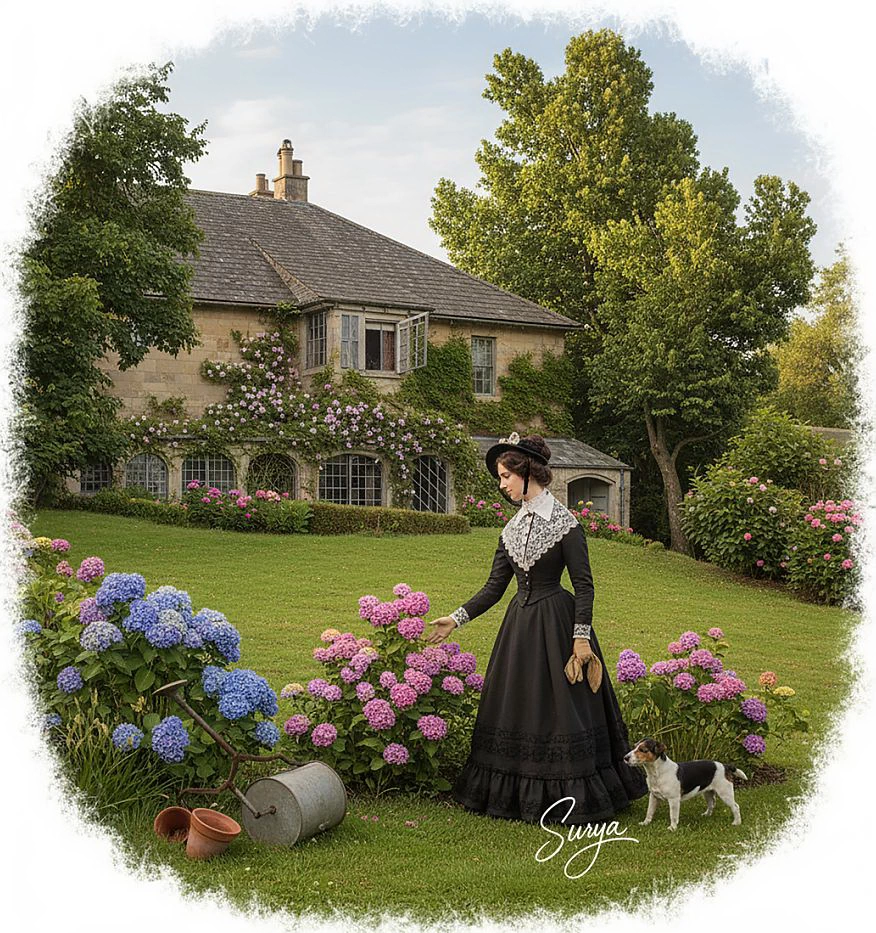

Click here to read this part in Malayalam
ഈ അദ്ധ്യായത്തിന്റെ, പുതിയ ലിപിയിലുള്ള മലയാളം പരിഭാഷയ്ക്കായി ഇവിടെ ക്ലിക്ക് ചെയ്യുക.
പ്രതിഭാവം വാട്സ്ആപ്പ് ഗ്രൂപ്പിലേക്കു സ്വാഗതം🌹
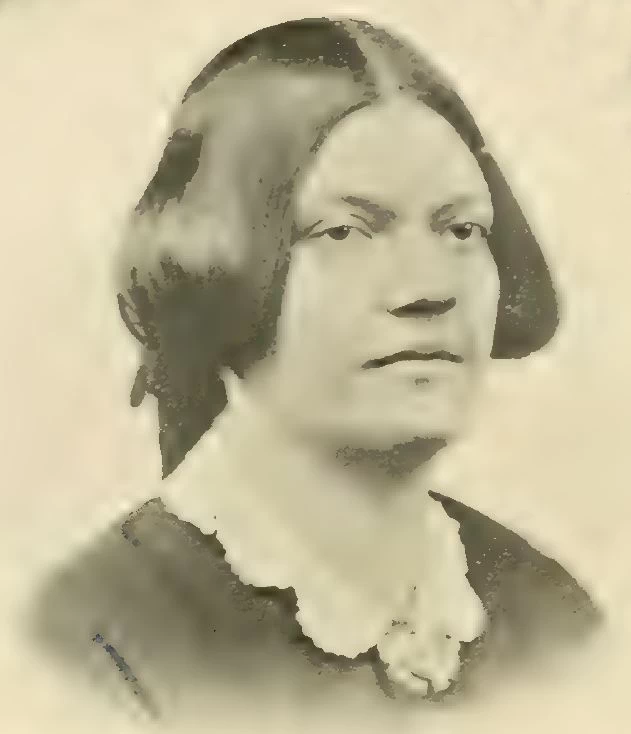
കാതറൈൻ ഹന്നാ മുള്ളൻസ്: ആദ്യത്തെ ഇന്ത്യൻ നോവലിസ്റ്റ്. പത്തൊമ്പതാം നൂറ്റാണ്ടിലെ ഇന്ത്യൻ മിഷണറി പ്രവർത്തക. സ്വീഡിഷ് വംശജയായ ഹന കാതറീൻ മുള്ളൻസ് 1826 ജൂലൈ 1നു കൽക്കത്തയിൽ ഒരു ലണ്ടൻ മിഷണറി കുടുംബത്തിൽ ജനിച്ചു. 1861 നവംബർ 21ന് ഉദരസംബന്ധമായ കുടൽരോഗത്താൽ കൽക്കത്തയിൽവെച്ച് അന്തരിച്ചു.


